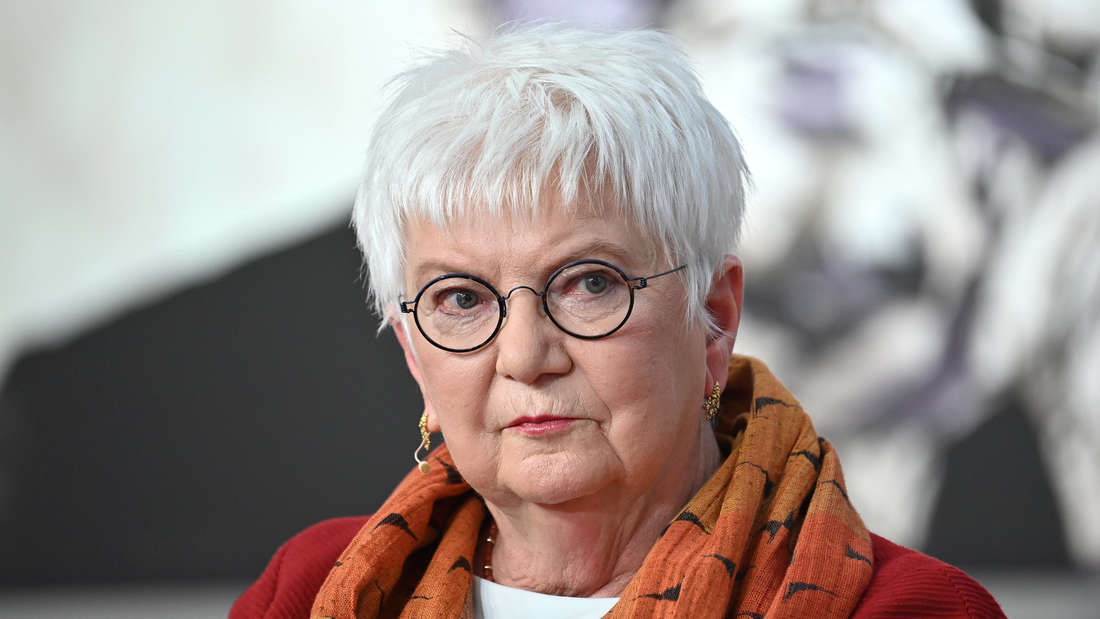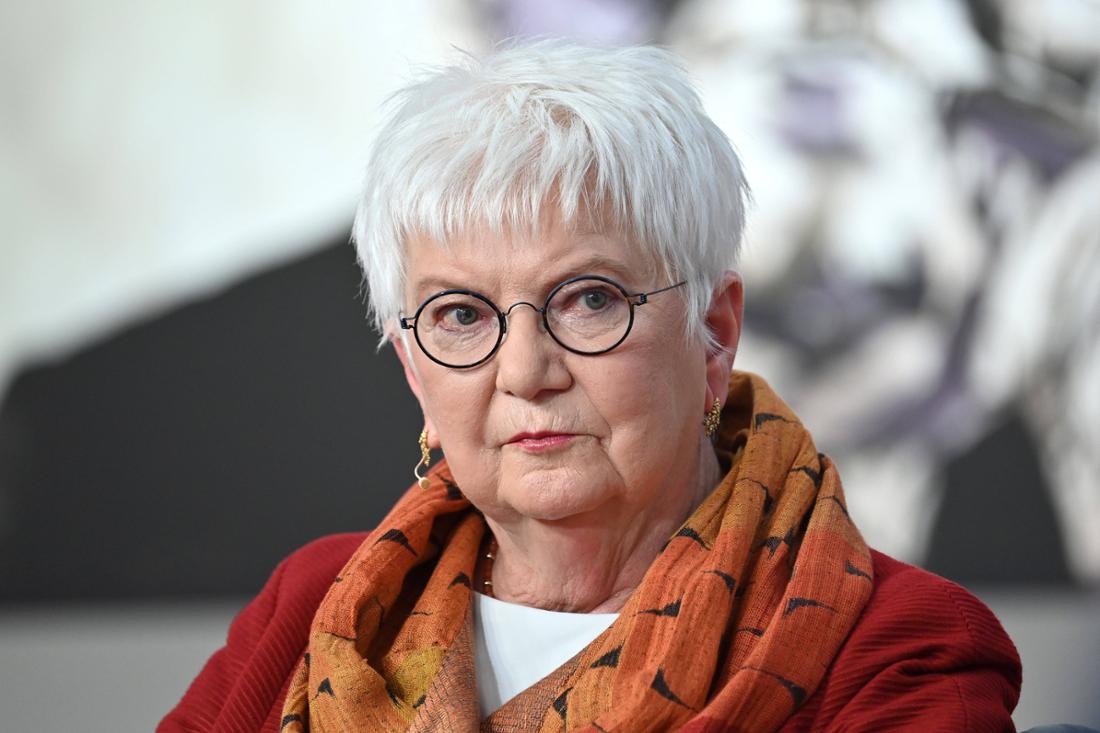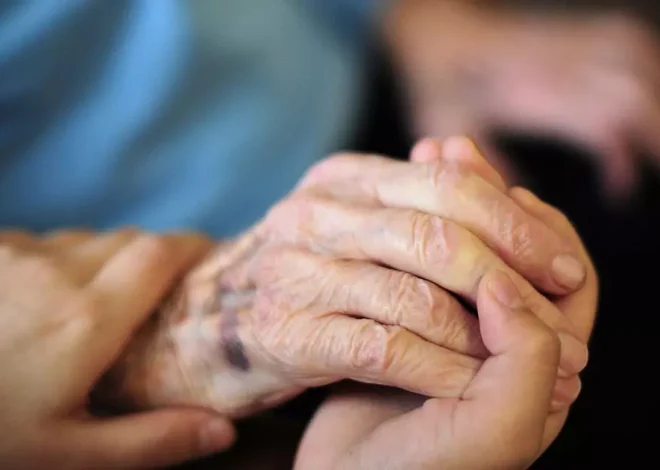
Red Cross chief warns: “People in need of care are increasingly under-served”
Press
A lot of things are going wrong in nursing, complains Gerda Hasselfeldt of the Red Cross in an interview. There are solutions – if decision-makers take action.
Berlin – Gerda Hasselfeldt has been President of the German Red Cross (DRK) since 2017. The former Minister of Construction and Health of the CSU complains about a number of negative developments in the care and health sector. She calls for better working conditions for nurses and criticizes the federal states that are driving up costs for people. Hasselfeldt describes the current situation in the Gaza Strip as catastrophic, with several helpers already having died in action.

Ms Hasselfeldt, nursing care contributions are set to rise next year, as the nursing care insurance fund’s ability to pay is otherwise at risk. The negative news in the nursing care sector is piling up: are we walking blindly into a catastrophe?
The situation in the facilities is extremely worrying for two reasons. On the one hand, we have a very strong need for workers – which is currently not being met and will increase in the future. And on the other hand, we have an underfunded nursing care insurance system that does not adequately finance the necessary wage increases, for example. As a result, many inpatient and outpatient facilities have to reduce services and close departments or even entire hospitals, meaning that security of care can no longer be guaranteed across the board unless countermeasures are taken.
Care for the needy is expensive – countries neglect care facilities
What about those who need care?
There are many people in need of care, for example in the outpatient sector, who refuse services because they would have to pay too much themselves. The consequence of this is that people in need of care are increasingly under-cared for. In the inpatient sector, we have a personal contribution that is on average 2,500 to 2,700 euros per month. That is too much and something has to change.
For example?
The high personal contribution is due, among other things, to the fact that many federal states do not meet their legal obligations for investment expenditure on care facilities. The obligation to do so described in the law is unfortunately vaguely worded, which is why many states do not pay enough, thereby increasing the costs for people in need of care. In addition, benefits from the care insurance must be paid that would have to be financed from other sources. For example, the care insurance pays the pension contributions for relatives who provide care. We are calling for a fundamental reform and want to put the financing of the care insurance on a solid and reliable basis with a base-top swap.
What does that mean?
In the future, people in need of care will have to pay a fixed amount for care depending on the level. Anything above that will come from the nursing care fund. At the moment, it is the other way round and people’s own contribution is increasing year after year. At the moment, the costs of a possible need for care are therefore not calculable. This too would change and improve with a swap.
More than five million people in need of care in Germany – “Number has been rising for years”
Health Minister Lauterbach recently expressed his surprise at how the number of people in need of care is increasing.
You have to face the situation. At the turn of the millennium, we had around two million people in need of care. Today, there are more than five million. This is mainly due to demographic developments. That is why the number has been rising for years.
Is the number of nurses also increasing?
Yes, but not nearly to the same extent and at the moment the number is actually stagnating. If we look to the future, the problem will become even greater. Many of today’s nursing staff will soon be retiring and there are not enough newly trained staff. We already have a precarious situation that is becoming even more tense.
As the DRK, you therefore want to make the nursing profession more attractive.
The nursing profession is very demanding and requires high qualifications and further training. Nurses are not assistants to doctors, but have their own profession and a lot of responsibility. This must also be reflected in practice, in appreciation on the one hand, and opportunities for advancement on the other.
Nursing staff shortage in Germany: professions should become more attractive
Opportunities for advancement, what does that mean?
Good training and continuing education structures are needed nationwide, as well as new fields of activity for nursing staff that involve more management responsibility, for example in communities. Under the leadership of nursing staff, volunteers could take on easier nursing tasks; there are already model projects for this. It’s about good ideas and new, regionally appropriate structures. We also need to reduce stress and workload in nursing. This could be achieved, among other things, by pooling substitutes who step in across providers and by reducing bureaucratic activities.
They are demanding more responsibility for nurses. The Ministry of Health is currently drafting the Nursing Competence Act for this purpose. Is this a step in the right direction?
The details have not yet been decided, but the direction is good. Nursing staff have a high level of competence thanks to their training and it is not understandable, for example, that a doctor is always needed for follow-up prescriptions for dressing materials. The nursing staff can do that.
Warning from the German Red Cross: Lauterbach’s hospital reform inadequate
In addition to nursing, many hospitals are also in a precarious situation.
Yes, non-profit hospitals in particular, which have neither the backing of the local authorities nor are allowed to build up reserves, are already having to file for bankruptcy. These hospitals are disappearing, even though they are efficient, but like many others they are making losses and no one is covering the costs. The consequence is undersupply in some regions. We need solutions now to improve the situation of non-profit hospitals. The current reform efforts are unfortunately inadequate.
A less predictable crisis occurred recently with the flood disaster. You yourself are from Bavaria and the affected region – how do you assess the disaster protection?
The work of all the helpers was outstanding, and we cannot praise that enough. Nevertheless, we need more support for such cases in the future. Disaster protection is a state matter, but civil protection is a federal matter. But we need more. Because these are no longer once-in-a-century floods, and something like that can happen again quickly. Security is not just a question of foreign policy and the armed forces. We also need a kind of turning point in civil protection.
DRC: Situation in Gaza Strip “catastrophic”
As the German Red Cross, you are active not only in Germany, but worldwide, and help in crisis areas. From a European perspective, the conflicts in our neighborhood dominate – but you are concerned with more.
There are many crisis areas that are lost in our debate and disappear from our consciousness. We at the German Red Cross are active in more than 50 countries, in Bangladesh, Sudan, Yemen and many more. We support our Red Cross and Red Crescent sister societies in caring for displaced people and refugees, help in the acute phase and long after earthquakes or flood disasters, and are active in conflict areas. What is important is that we are always neutral, do not take sides, and do not divide people into guilty and innocent. We help everyone who needs help, based solely on the level of need.
The German Red Cross is currently active in the Gaza Strip. What is the humanitarian situation there?
The situation for millions of people in the Gaza Strip is catastrophic. The civilian population is paying the price for this conflict. There are thousands of dead and injured and a major problem is that we often lack consistent access to the people who need help. There is also often a lack of security for those helping. 20 helpers from our sister organization, the Palestinian Red Crescent, have died in aid missions since the start of the armed conflict. But our sister organization Magen David Adom in Israel has also lost four helpers in the field. We must not forget the suffering of the hostages and their families. The increasing, massive violence in northern Israel is also a cause for concern. Tens of thousands of people have had to leave their homes in recent months, and many more live in constant fear for their lives. As the Red Cross, we can only appeal again and again to all parties to the conflict to respect international humanitarian law and protect the civilian population.

Ethel Purdy – Medical Blogger & Pharmacist
Bridging the world of wellness and science, Ethel Purdy is a professional voice in healthcare with a passion for sharing knowledge. At 36, she stands at the confluence of medical expertise and the written word, holding a pharmacy degree acquired under the rigorous education systems of Germany and Estonia.
Her pursuit of medicine was fueled by a desire to understand the intricacies of human health and to contribute to the community’s understanding of it. Transitioning seamlessly into the realm of blogging, Ethel has found a platform to demystify complex medical concepts for the everyday reader.
Ethel’s commitment to the world of medicine extends beyond her professional life into a personal commitment to health and wellness. Her hobbies reflect this dedication, often involving research on the latest medical advances, participating in wellness communities, and exploring the vast and varied dimensions of health.
Join Ethel as she distills her pharmaceutical knowledge into accessible wisdom, fostering an environment where science meets lifestyle and everyone is invited to learn. Whether you’re looking for insights into the latest health trends or trustworthy medical advice, Ethel’s blog is your gateway to the nexus of healthcare and daily living.



